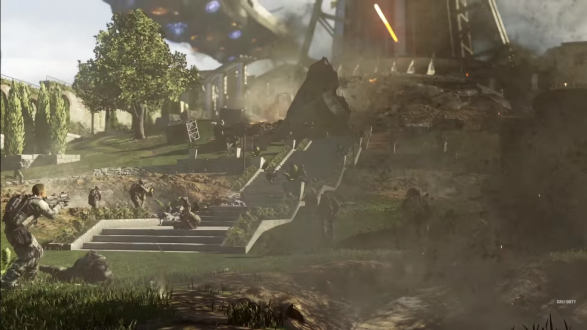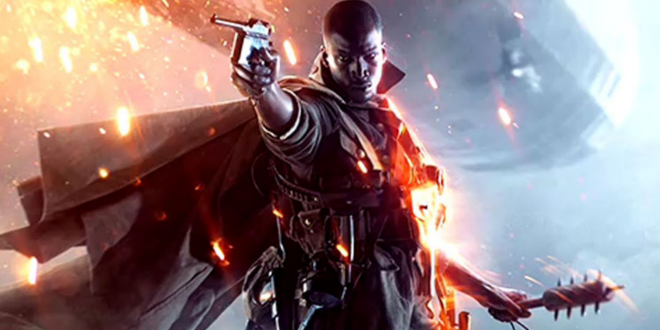For the last 10 years, the modern day military FPS genre has been more or less dominated by two of the largest franchises to ever exist in gaming. On one side, you have Call of Duty, a faster paced game that lets you be your own action hero, running around and gunning people down in seconds with little regards to your own teammates. On the other side lies Battlefield, a slower game that puts a significant emphasis on working together with your team. Sure, you can try to play like you're Rambo, but chances are that you'll either be annihilated by a vehicle or shot to death by some dozen people.
Lately, an intense rivalry has flared up between the fanbases of the two franchises, especially after the release of a couple of trailers that showed off their upcoming games. A rational person would simply pick a product that they like and ignore the others, but this is a special kind of rivalry that causes some people to make various posts regarding which developer murdered the other or downvote a perfectly fine trailer to oblivion and similar nonsense.
Unfortunately, as amusing as it may be to witness one of the most petty Internet wars of all time claiming that one franchise will destroy the other, the truth is that they rely upon each other far more than any of us may care to admit; without one, the other will likely fall.

From a purely economic standpoint, the fact that they are direct competitors means that their fates are more or less intertwined. After all, one of the core pillars of capitalism dictates that competition in a market drives innovation, which would (theoretically) lead to a survival of the fittest situation where only the best product would remain. For the two franchises to have experimented with different themes at roughly the same time frames would suggest this, especially with their 2006-2008 releases of Modern Warfare, Battlefield 2142, and Bad Company shifting away from World War II, their 2014-2015 releases of Battlefield Hardline and Advanced Warfare taking different approaches to try and distance themselves from the modern military shooter theme, and the latest Infinite Warfare and Battlefield 1 themes of going to the future and the past, respectively.
Needless to say, these two behemoths have certainly made their impact upon the FPS genre during that time frame, especially upon each other. Class based multiplayer combat, plenty of customization options, perks, and all manners of cheesy, scripted campaign missions have become a staple of the both Battlefield and Call of Duty, as well as countless other military FPSes, and it would be naive to say that a design decision in one was not influenced by a design decision in the other. Think of it as a Cold War of sorts, except the two participants are franchises that are fighting to stay relevant by adapting gameplay mechanics from their competitor to fit within their own game.

For example, Call of Duty World at War implemented tanks and dedicated anti-tank weaponry into its multiplayer, though it didn't prove to be very popular, just like how Battlefield 3 implemented a co-op campaign of sorts, which was also not that popular judging by its absence in subsequent titles. However, they were features that one typically doesn't associate with the respective brand, and their inclusion certainly seemed to be reactionary rather than being a natural progression of the series.
But let's imagine that one of the two were to just get completely canceled, with no hope for a reboot or anything of the sort. Aside from making one fanbase really happy, it wouldn't really do much good for anyone. Sure, EA or Activision would then have a monopoly over the modern-ish genre of FPSs, but would it really advance the genre? At best it would indicate that people are tired of realism and just want to escape into a world that they can't even conceive of. At worst, this would turn the genre rather stagnant as a lack of competitors leads to complacency, so any hope that you may have had for Call of Duty or Battlefield to be innovative might as well be wishes.
At this point, to wish for the demise of one is to wish for the death of the other, especially when other games have proven that modern audiences are slowly losing interest in the very themes, mechanics, and motifs that used to define Call of Duty and Battlefield.
Have a tip, or want to point out something we missed? Leave a Comment or e-mail us at tips@techraptor.net













